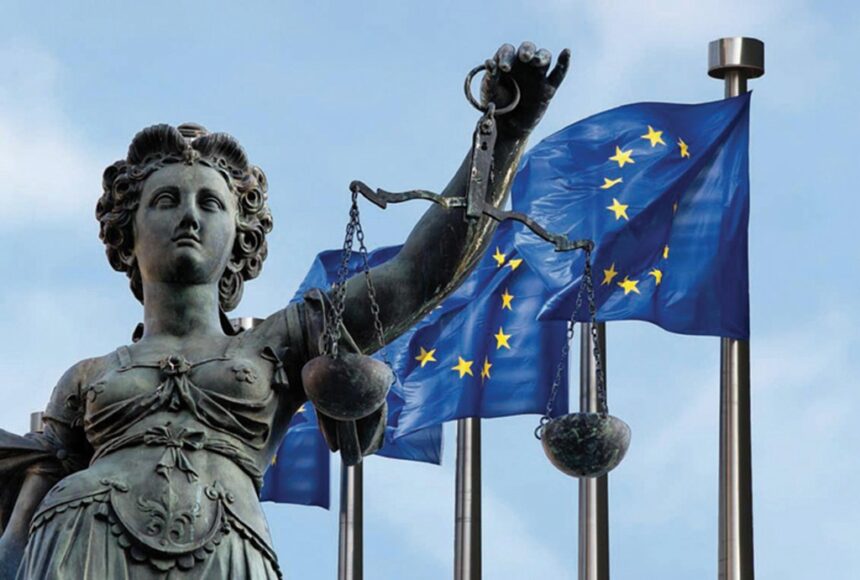The European Arrest Warrant (EAW) is a legal mechanism that streamlines the extradition process between European Union (EU) member states. Introduced in 2004, it replaces lengthy extradition procedures with a more efficient system based on mutual recognition of judicial decisions.
This tool is pivotal in ensuring that individuals who commit crimes in one EU country cannot evade justice by fleeing to another.
How the European Arrest Warrant Works
The EAW is issued by a judicial authority in one EU country and is valid across all other member states. Once issued, it requires the arrest and transfer of a suspect or convicted individual to the issuing country. The process follows these key steps:
- Issuance of the Warrant – A judicial authority in the requesting country issues an EAW for a suspect or convicted individual.
- Transmission to Other EU States – The warrant is circulated through the Schengen Information System (SIS) and Interpol, ensuring swift action.
- Arrest of the Individual – Authorities in the country where the suspect is located detain them based on the EAW.
- Judicial Review – The individual has the right to challenge the warrant before the local courts.
- Surrender to the Requesting State – If the warrant is upheld, the individual is transferred to the issuing country within 60 days.
Key Advantages of the EAW
The European Arrest Warrant provides several benefits that enhance judicial cooperation across Europe:
- Speed: Traditional extradition procedures could take years, but the EAW reduces the process to a matter of weeks.
- Simplified Legal Process: Member states recognize each other’s judicial decisions, reducing bureaucratic obstacles.
- Human Rights Safeguards: The EAW includes protections against unfair trials, excessive detention, and violations of fundamental rights.
- Reduction of Safe Havens: Criminals can no longer exploit national borders to evade justice.
Challenges and Controversies
Despite its benefits, the European Arrest Warrant has faced criticism and legal challenges, including:
- Risk of Misuse: Some countries have issued EAWs for minor offences, leading to concerns about proportionality.
- Human Rights Concerns: Some extraditions have raised questions about prison conditions and fair trial rights in the requesting state.
- Political Sensitivities: High-profile cases, such as the extradition of political dissidents, have sparked diplomatic tensions between member states.
Notable Cases Involving the European Arrest Warrant
Several high-profile cases have demonstrated the EAW’s effectiveness and limitations:
- Carles Puigdemont Case (Spain-Belgium/Germany) – The former Catalan leader was subject to an EAW for his role in the 2017 Catalonia independence referendum. His extradition was contested on political and legal grounds.
- Julian Assange Case (UK-Sweden) – The WikiLeaks founder was arrested under an EAW issued by Sweden for allegations of sexual misconduct, though the case was later dropped.
- Lukasz Herba Case (UK-Italy) – The Polish national was extradited to Italy under an EAW for the kidnapping of a British model in 2017.
The Impact of Brexit on the European Arrest Warrant
Following the United Kingdom’s exit from the EU, the UK is no longer part of the European Arrest Warrant system. Instead, it now relies on a new extradition framework based on the Trade and Cooperation Agreement (TCA). This change has led to:
- Longer extradition procedures between the UK and EU states.
- Increased bureaucratic hurdles compared to the pre-Brexit EAW system.
- More cases of delayed or denied extraditions due to political and legal disagreements.
The Future of the European Arrest Warrant
The European Arrest Warrant remains a cornerstone of European judicial cooperation. While it has significantly enhanced the efficiency of extraditions within the EU, concerns regarding proportionality, human rights, and political influence continue to challenge its application.
As legal frameworks evolve, the EU may need to refine the system to address these concerns while maintaining its core objective: ensuring that criminals cannot escape justice simply by crossing borders.
Related News:
Two Chinese Women Arrested for Illegal Work in Bangkok’s Tourist Area














